Optimize Vegan Running With a Plant-Based Diet for Runners
Improve your health and make running gains by switching to a plant-based diet for runners. Learn of all the benefits of being a vegan runner.
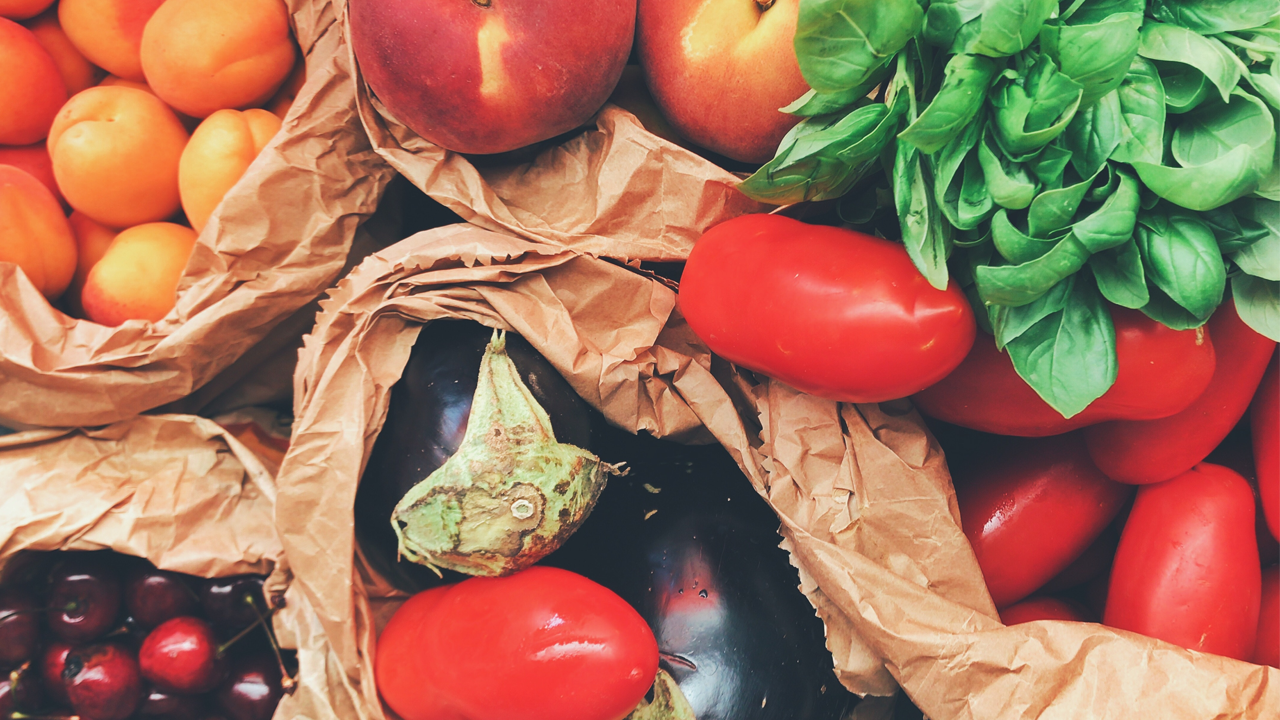
Turn on Netflix or browse a shelf at the bookstore and you’ll see plenty of new documentaries and books about a plant-based diet. Wander the dairy case at the grocery store and find numerous plant milk options. Once a fringe presence, plant-based dieters are growing in numbers. Not only that, but they just might be a plant-based runner standing next to you at the trailhead or at the next squat rack in the gym.
From professional runners to yours truly, plant-based runners are a growing community of athletes. With a leg up on nutrition and several potential health benefits, exploring a plant-based diet just might be a way to level up your vegan running via the kitchen.
What Is a Plant-Based Diet?
If you’re unfamiliar with this way of eating, your first question might be what exactly are the guidelines for being plant-based?
Well, someone who eats a plant-based diet chooses to eliminate any animal products and instead rely only on plant foods. This encompasses the huge variety of vegetables, fruits, grains, legumes and beans, seeds, vegetable fats, and spices. The term plant-based might not extend to the person’s lifestyle, though. They may still choose to use animal products such as leather, wool, silk, or beeswax. Someone who also avoids those products uses the label vegan. While the lifestyle may be somewhat different, the types of food and nutrition for vegans and plant-based folks tend to be the same.
Why Become a Vegan Runner?
There are arguments for environmental, ethical, and health reasons for eating plant-based. For runners, likely the biggest motivator would be health reasons, especially if those benefits translate to improved running performance.
As the bulk of a plant-based diet is vegetables, fruits, and whole grains you’re potentially getting much larger doses of vitamins, minerals, antioxidants, and fiber. All of those components can lead to faster recovery, less inflammation, and a generally healthier feeling.
I’m not saying that an omnivore or vegetarian can’t get these nutrients and benefits, of course. After all, veggies aren’t reserved only for plant-based eaters. There’s just more room on the plant-based plate for…well, plants.
Most Notable Vegan Runners
These athletes have excelled in their respective sports while maintaining a vegan diet, showcasing that peak performance is achievable without animal products. Not only have they excelled in their sporting disciplines, but they’ve also used their platforms to showcase the benefits and ethics of a vegan lifestyle.
- Scott Jurek (born 1973): Scott Jurek is one of the most recognized ultramarathon runners in the world, with numerous wins in some of the most challenging ultramarathon events, including the Western States 100 Mile Endurance Run and the Spartathlon. Jurek has been vegan since 1999 and credits his diet for his endurance, recovery, and consistent performance over the years. He has often spoken about how a plant-based diet enhances his athleticism and authored "Eat & Run", a memoir focusing on his running career and vegan nutritional approach.
- Fiona Oakes (born 1969): An incredible marathon and ultra-distance runner, Fiona Oakes holds multiple world records, including the fastest aggregate time to complete a marathon on each continent. A vegan since her teenage years, Oakes operates an animal sanctuary and uses her running achievements to raise awareness for animal rights and promote a vegan lifestyle. Her veganism is rooted in an ethical stance against animal cruelty, and she demonstrates that peak athletic performance can be achieved with plant-based nutrition.
- Rich Roll (born 1966): After adopting a vegan diet and taking up endurance running in his 40s, Rich Roll completed the EPIC5 Challenge, which involves completing five Ironman-distance triathlons on five different Hawaiian islands in under a week, and has been named one of the "25 Fittest Men in the World" by Men's Fitness. Rich credits his remarkable physical transformation and athletic achievements to his plant-based diet and has become a prominent advocate for veganism through his bestselling books and widely popular podcast.
The Top Health Benefits of Plant-Based Diet For Runners
Many studies have been published which explain the potential health benefits of a plant-based diet. One most recent study from 2019 titled “Plant-Based Diets for Cardiovascular Safety and Performance in Endurance Sports” not only reviewed the cardiovascular benefits, but also found that there are benefits for everyday nutrition, fueling your runs, better weight management, and more. We’ll touch on each finding in this article, and you can read the study in full here.
Nutritional Density:
The three macronutrients of protein, carbohydrates, and fat are found in varying and adequate levels in all plant foods, so any concerns of nutrient deficiency are unnecessary. Micronutrients such as vitamins, minerals, and fiber are also found in abundance in plant foods. For example, the dark leafy greens which are great to consume every day contain vitamins A, C, E, and K. They also contain antioxidants that help fight inflammation (more on that in a moment).
Additionally, you’ll get nutrients like iron, magnesium, and potassium. Calcium is also prevalent in many leafy green vegetables and legumes like black beans and chickpeas, as well as any fortified plant milk. Legumes like beans and lentils and veggies like spinach are great sources of iron, which is important for all athletes. Those are some big bangs for your kale buck! Even better, plants do not contain any cholesterol, a contributing risk factor for health conditions such as heart disease.
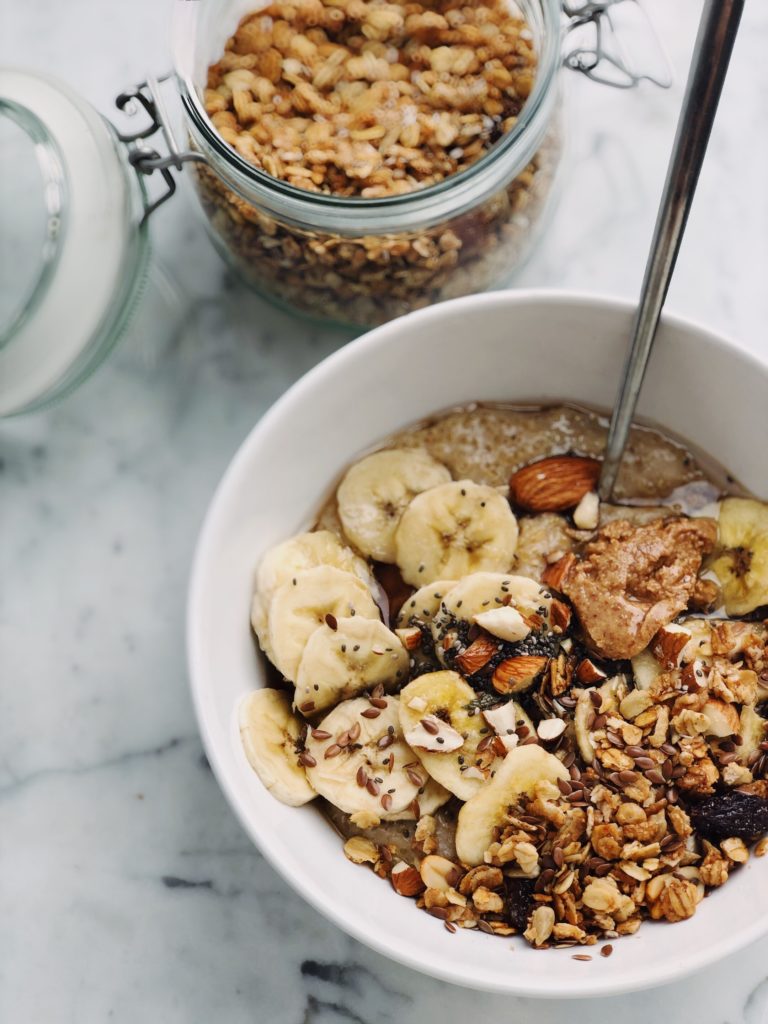
Improved Coronary Health:
Speaking of heart disease, a healthy plant-based diet can help prevent and even reverse the symptoms and severity of many types of cardiovascular disease. The risk of heart disease increases with factors such as high cholesterol, higher body weight, poor arterial function, and chronic diseases such as diabetes. Continue reading and you’ll see just how a plant-based diet can contribute to avoiding those risk factors in the first place. As runners, our heart health is at the top of the priority list!
Decreased Inflammation:
After a hard workout or run, you probably feel a little sore or stiff. Your muscles have been damaged through training (totally normal!) and now must rebuild and repair. Part of that soreness your feeling is inflammation within the muscles themselves, as well as in areas like your joints. Even though it’s just a part of the training cycle, you can give your body a little boost in fighting that inflammation through diet. You may have heard of antioxidants, which are compounds within foods such as colorful fruits and vegetables. Dark red cherries, purple blackberries, and even high-fiber beans like chickpeas all contain antioxidants that help fight inflammation, promote healing, and encourage cell regulation through apoptosis.
Improved Blood Flow:
This might seem like a less important benefit to following a plant-based diet but bear with me. Your body depends on the circulation of blood throughout the body to deliver oxygen and remove waste. This is especially true when completing aerobic exercise like running. Lactic acid, for example, which makes you feel that side stitch pain, is a waste product that your blood removes from your muscles. When your blood is thinner, so to speak, it’s more efficient at carrying out those tasks of removing waste and oxygenating your body. Eating a plant-based diet that is generally lower in fat and contains zero cholesterol results in that thinner blood which is more efficient in your body.
Additionally, plant-based eaters have been shown to have more flexible arteries and a lower risk of high blood pressure, which, combined with that thinner or less viscous blood, results in improved oxygen transportation throughout the body and potentially improved running performance.
Maximized Glycogen Storage:
Glycogen is the name of the sugar that your body uses during exercise. Glycogen comes from carbohydrates that we eat, such as those found in beans, starchy veggies such as potatoes and corn, and all manner of fruits. Since a plant-based diet tends to be quite high in carbs, a runner’s muscles are more likely to always be fueled and ready to run, including at that 20-mile mark when marathon runners are most likely to hit the wall and feel depleted of energy.
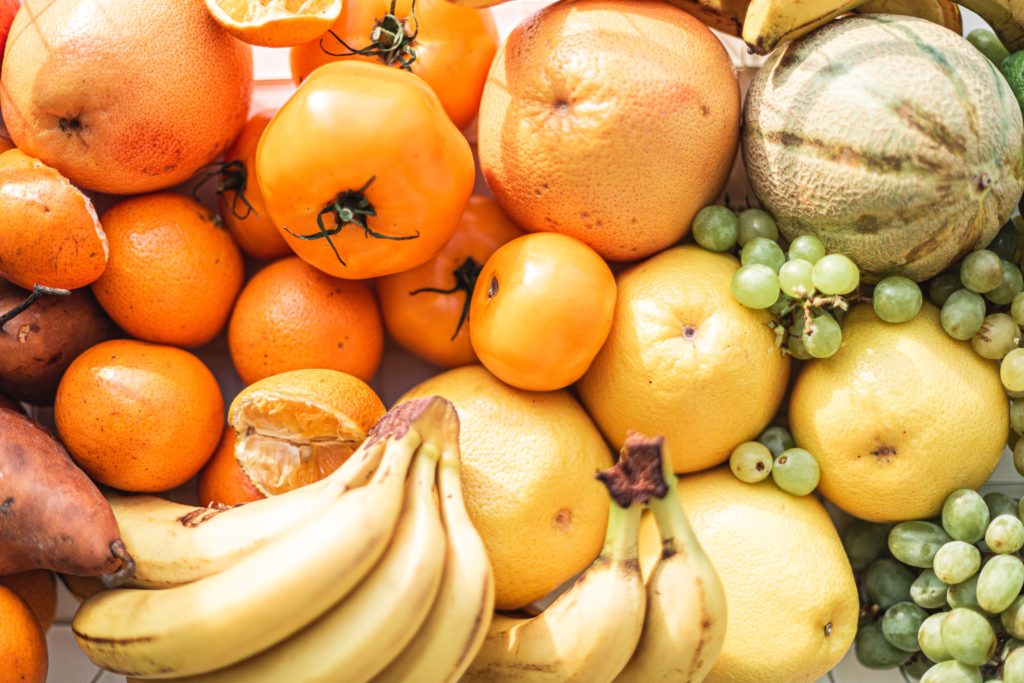
Easier Weight Management:
People who eat only plant foods may find it easier to maintain or lose weight due to the food being higher in nutrition and volume, and typically lower in fat. Staples of a plant-based diet range in calories from about 100 calories per pound (greens, cucumbers, and other nonstarchy veggies) all the way up to 600 calories per pound (grains, beans, and starchy vegetables). While 600 calories may sound like a lot, have you ever eaten a pound of beans in one sitting? Chances are good that you’ll get full before you get anywhere near that caloric mark. Nuts and seeds do have higher caloric loads, to the tune of 2,500 calories per pound, so this is where moderation is key.
Maintaining a healthy weight is important no matter if you’re an athlete or not. But, as a runner, it can be especially helpful. It’s more energy-efficient if you’re trying to build speed or endurance, and as the article suggests, you can more easily build your body’s ability to process and use oxygen when you’re at a healthy weight.
Are There Any Downsides to Running on Plants?
The short answer is, it depends. Healthwise, you just need to be sure your diet is varied and that you consume enough calories every day to support your energy levels.
One supplement which is recommended to all plant-based eaters is vitamin B12. Found in animal foods and healthy soils, this vitamin is used for nerve and brain function, as well as the production of blood cells, so be sure to include a daily dose.
Be prepared to answer the most commonly asked question of vegans and plant-based eaters alike:
Where do you get your protein?
Even though science has shown time and again that you don’t need animal products to meet your protein requirements, the question persists. Remember that all plant foods, even seemingly innocuous ones like cauliflower, contain protein. Studies such as this one show that as long as you’re consuming foods such as seeds, nuts, whole grains, and beans you’ll get enough protein and amino acids to support your training and recovery.
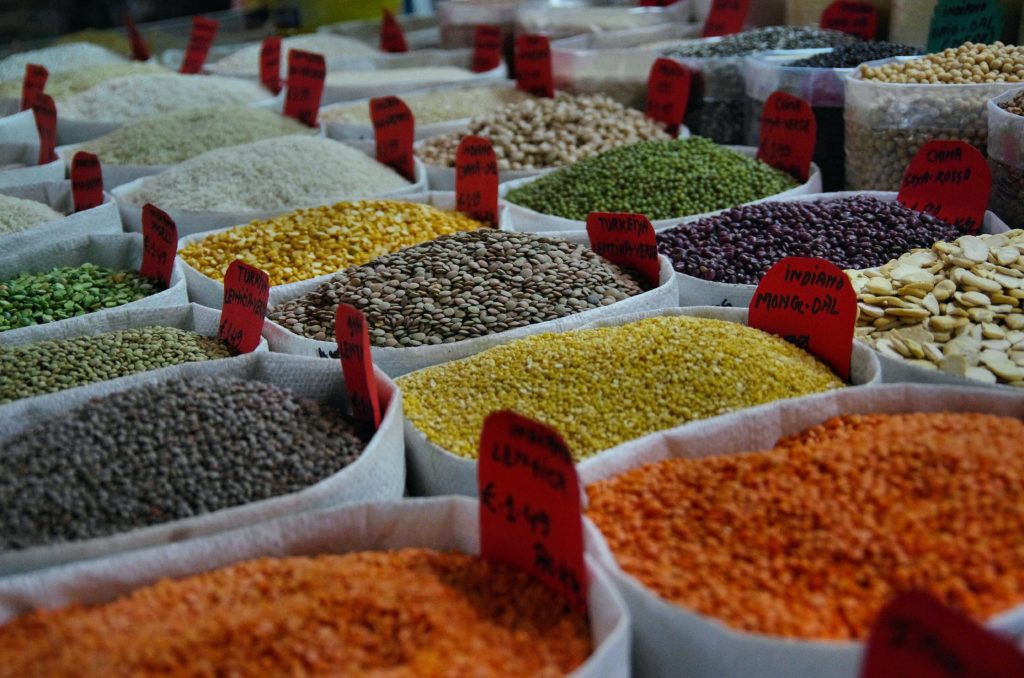
Speaking of amino acids, another misconception is the idea of complete and incomplete proteins. It was previously thought that in order to have a complete protein with all the amino acids required for muscle growth and recovery that you needed to eat certain combinations of foods. The classic example was having beans and rice in the same meal so that the two foods could complement each other’s amino acid profile to produce complete proteins. It has since been shown that this is an unnecessary step. Simply eat a diverse diet of whole foods and the body is fully able to pull the nutrients it needs to carry out all its functions, including muscle building and repair.
Navigating Socially as a Plant-Based Runner
Socially, this way of eating may be a bit trickier. Depending on where you live, finding restaurants with plant-based options can still be difficult. However, there is a growing trend to have menus which are more inclusive of people’s dietary choices.
Your friends and family might question your choices at first, especially if eating meat and dairy products are a regular part of your habits and family traditions. A great way to get around this one is to bring a plant-based dish to share with everyone. Don’t feel the need to replicate a meat- or dairy-based dish. Instead, choose one that celebrates the ingredients for what they are.
When it comes down to it, as long as you’re getting enough calories and eating a balanced, healthy diet—which you should be doing anyway—there’s no reason to shy away from being a plant-based runner.
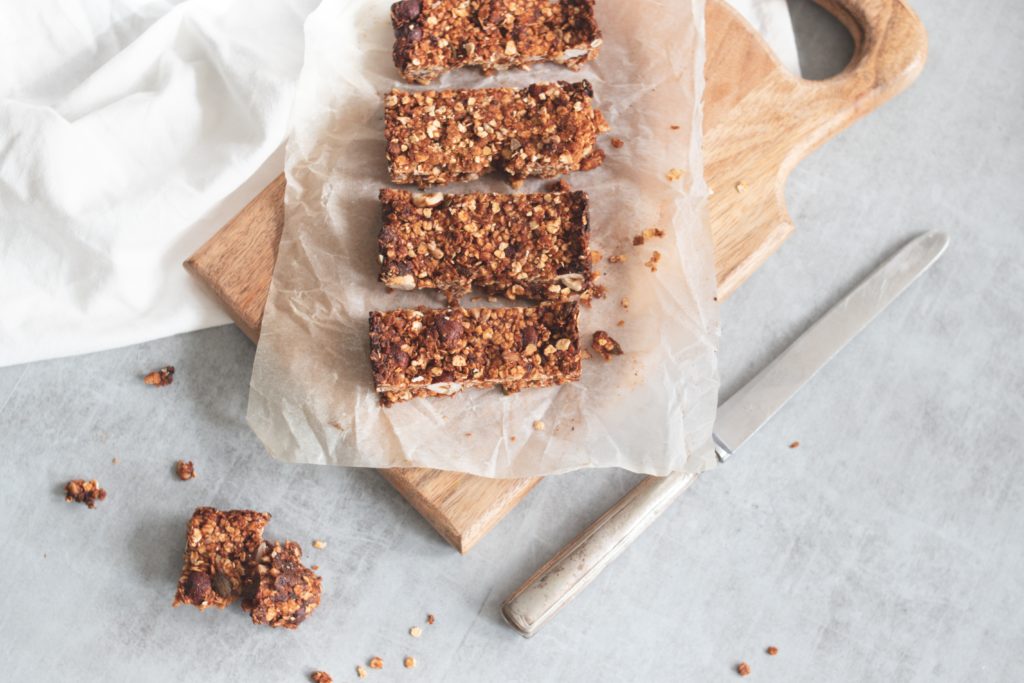
How to Start a Plant-Based Diet
Fortunately, making the switch to plant-based eating can be as gradual or as abrupt as you want. Some people like to ease into the change of consuming less meat with trends such as Meatless Monday. Others take a cold-turkey (no pun intended) approach and make the switch overnight.
The benefit of a gradual approach is that it tends to be more sustainable. You’re less likely to be overwhelmed with new expectations and the loss of go-to meals and recipes. You can also use up the last of the animal-based ingredients you have on hand, replacing them with plant-based options as you go. If you prefer the jump-in-with-both-feet approach, try to “rehome” the ingredients you no longer want to eat and avoid throwing away food that someone else would be happy to have.
No matter your approach to plant-based eating, your pantry and fridge staples are pretty easy to stock up on. Unless you’re planning to dive into a certain cuisine and want to find niche ingredients, you don’t even need to hit a health food store. The aisles of your regular grocery store are guaranteed to have everything you need to outfit your new plant-based kitchen.
If you’re concerned about your health or nutrition, you can always chat with a nutritionist or dietitian to make sure you’re on track with your new eating habits.
A Day of Plant-Based Eating
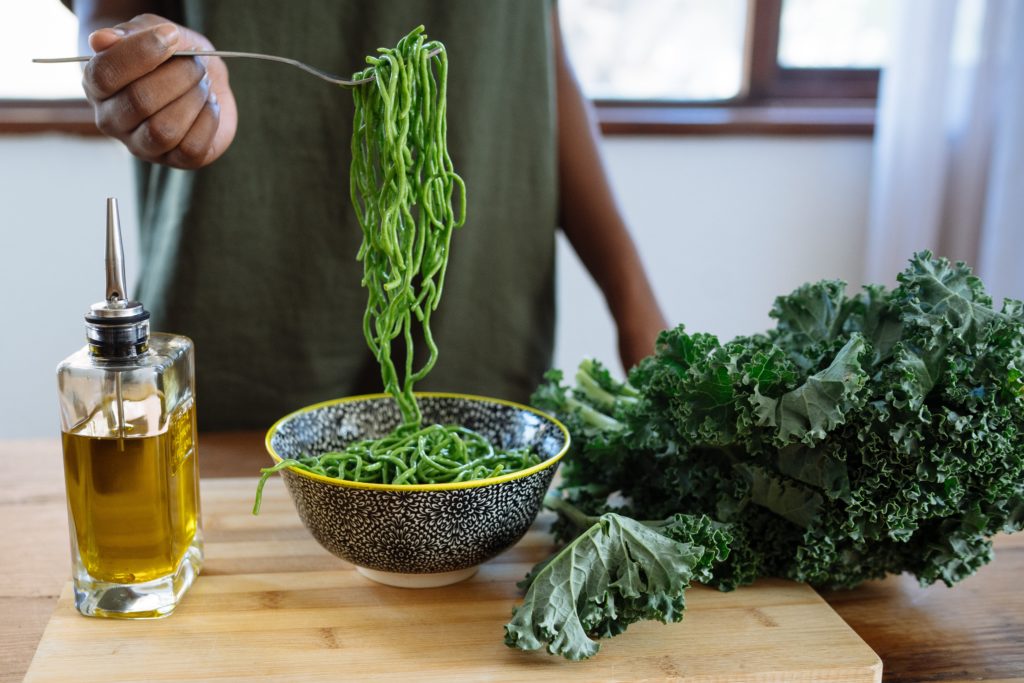
Breakfast: Overnight oats soaked in soymilk and topped with raisins, cinnamon, and a little maple syrup. Add some pumpkin or sunflower seeds and a few walnuts to add healthy fats and protein.
Snack: Hummus or avocado on whole-wheat toast with extra veggies or a piece of fruit.
Lunch: Southwestern salad of mixed greens, tomato, yellow and orange peppers, red cabbage and carrot shreds, and, sweet corn. Top with avocado, tahini, lime juice, and a drizzle of maple syrup (trust me!) Pair it with roasted sweet potato or brown rice with cashew cheese.
Dinner: A stir-fry of mixed veggies, tofu, and quinoa. Try tempeh instead of tofu for a different texture, and sprinkle nutritional yeast on top for extra protein and vitamin B12.
Dessert: Medjool dates with a little almond butter and a cup of tea
Best Vegan Running Diet Foods
Fueling your body with the right nutrients is crucial for runners, and a vegan diet can provide all the essential vitamins, minerals, and macronutrients needed to support your training and recovery. Here are some of the best vegan foods to include in your running diet:
1. Leafy Greens
Kale, Spinach, Swiss Chard: These greens are packed with iron, calcium, and vitamins A, C, and K. Iron is particularly important for runners to maintain healthy red blood cell levels and prevent fatigue.
2. Legumes
Lentils, Chickpeas, Black Beans: High in protein and fiber, legumes are excellent for muscle repair and keeping you full longer. They also provide complex carbohydrates for sustained energy.
3. Whole Grains
Quinoa, Brown Rice, Oats: Whole grains are a great source of complex carbohydrates, which are essential for endurance running. They also provide fiber, B vitamins, and minerals like magnesium and zinc.
4. Nuts and Seeds
Chia Seeds, Flaxseeds, Almonds, Walnuts: These are rich in omega-3 fatty acids, which help reduce inflammation and promote heart health. They also offer protein and healthy fats.
5. Fruits
Berries, Bananas, Apples: Fruits provide quick energy from natural sugars and are packed with antioxidants, vitamins, and minerals. Bananas, for example, are great for potassium, which helps prevent cramps.
6. Vegetables
Sweet Potatoes, Bell Peppers, Broccoli: These vegetables are high in vitamins A and C, fiber, and antioxidants. Sweet potatoes, in particular, are an excellent source of complex carbs and potassium.
7. Plant-Based Proteins
Tofu, Tempeh, Edamame: These soy products are high in protein and contain all the essential amino acids. They’re also versatile and can be included in a variety of dishes.
8. Healthy Fats
Avocados, Olive Oil, Coconut Oil: Healthy fats are crucial for overall health and provide a concentrated source of energy. Avocados also supply potassium and fiber.
9. Hydration and Electrolytes
Coconut Water, Herbal Teas: Staying hydrated is key for runners. Coconut water is a natural source of electrolytes like potassium, sodium, and magnesium, which help maintain fluid balance and muscle function.
10. Superfoods
Spirulina, Nutritional Yeast: These superfoods are nutrient-dense and provide a range of vitamins, minerals, and antioxidants. Nutritional yeast is particularly good for B vitamins and has a cheesy flavor that can enhance many dishes.
Sample Vegan Running Meal Plan
Breakfast
- Oatmeal with Berries and Chia Seeds: A hearty and nutrient-dense meal to start your day with complex carbs, fiber, and omega-3s.
- Green Smoothie: Blend spinach, banana, almond milk, and a scoop of plant-based protein powder for a quick and nutritious breakfast.
Lunch
- Quinoa Salad with Chickpeas and Avocado: This provides a balanced mix of protein, healthy fats, and complex carbs.
- Vegetable Stir-Fry with Tofu: Use a variety of colorful veggies and a soy sauce-based dressing for a satisfying meal.
Snack
- Apple with Almond Butter: A quick and easy snack that combines carbs, protein, and healthy fats.
- Energy Balls: Made with dates, nuts, seeds, and cocoa powder for a portable and energy-boosting snack.
Dinner
- Lentil Soup with Whole Grain Bread: A comforting and protein-rich meal that’s easy to digest.
- Sweet Potato and Black Bean Tacos: Load up whole grain tortillas with spiced sweet potatoes, black beans, and fresh veggies.
Post-Run Recovery
- Banana and Nut Butter Smoothie: Blend a banana with almond milk, a spoonful of nut butter, and a dash of cinnamon for a quick recovery shake.
- Edamame and Carrot Sticks: High in protein and fiber to help with muscle recovery and satiety.
Plant-Based Runner Resources
Since the topic of nutrition is vast, below are some of the best plant-based runners for further resources. If you think a plant-based diet is for you or if you’re looking for a little more inspiration, read up:
No Meat Athlete: a comprehensive website for all athletes, not just runners, with a focus on nutrition and vegan recipes.
Rich Roll: author of Finding Ultra and a plant-based podcast.
Scott Jurek: perhaps the best-known vegan athlete, holder of many 1st place finishes, and author of several books, including Eat and Run.
Whether you’re looking to improve your health in general or you’re looking for running-specific gains, a plant-based diet for runners might be just the ticket for you!
If you’re looking for other nutrition advice, you can find our tips of do’s and don’ts here on the blog. And, be sure to join our community in the app to find other plant-based athletes to chat with!
